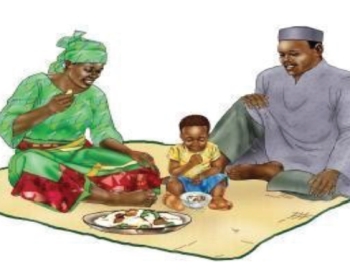Prevalence and predictors of appropriate complementary feeding practice among mothers with children 6–23 months in Northern Ghana
Abstract
Introduction
Adequate assessment of appropriate complementary feeding practices requires an indicator that can measure its key components concurrently, but past studies often described the practice using single indicators. This study in northern Ghana therefore assessed the prevalence and predictors of appropriate complementary feeding practices as measured using a composite indicator.
Methods
The source of data for this analysis is from baseline studies of a community-based quasi-experimental study conducted prior to implementing a nutrition behaviour change communication intervention on radio. The study population comprised mothers and their children selected using a two-stage cluster sampling procedure. Multivariable logistic regression was used to identify factors associated with appropriate complementary feeding practices.
Results
The overall prevalence of appropriate complementary feeding practices combining three key indicators (timely introduction of complementary food, adequacy of meal frequency, and meeting minimum dietary diversity) was 29.8% (95% CI: 27.4 - 32.3). Children aged 12-23 months [AOR = 2.26 (95% CI:1.41 - 3.61)], higher nutrition related knowledge ofcaretakers [AOR 1.51; 95% CI (1.15 - 1.98)], higher educational level of mothers [AOR1.95; 95% CI (1.17 - 3.25)], and positive nutrition related attitudes towards appropriatecomplementary feeding practices [AOR 1.59; 95% CI (1.21 - 2.09)] were significantlyassociated with appropriate complementary feeding practice.
Conclusions
The prevalence of appropriate complementary feeding practices was quite low among children aged 6–23 months. Sustainable nutrition education to mothers/caretakers during prenatal, delivery, postnatal, and child welfare clinic on appropriate complementary feeding should be strengthened to increase nutrition related knowledge and attitude towards appropriate complementary feeding practices.

Authors retain all copyrights. In making a submission to World Nutrition, they are certifying that all material is theirs except quotations, as indicated, and that they have obtained permission for any photos, tables, or graphics taken from other publications or websites.




